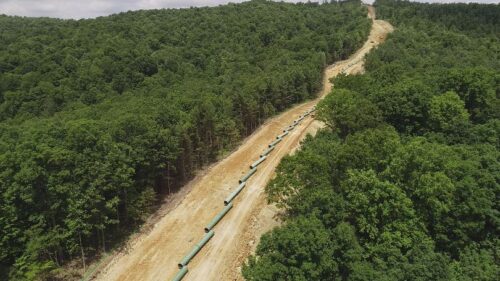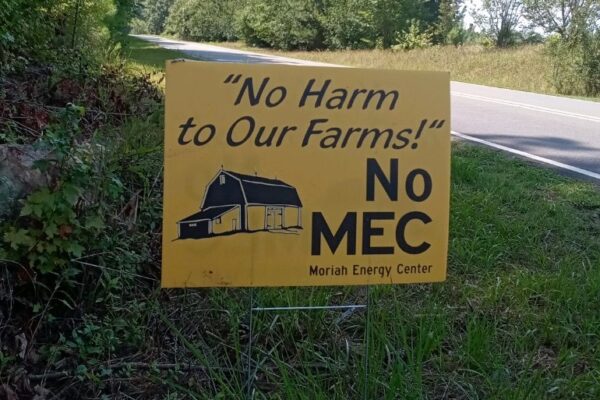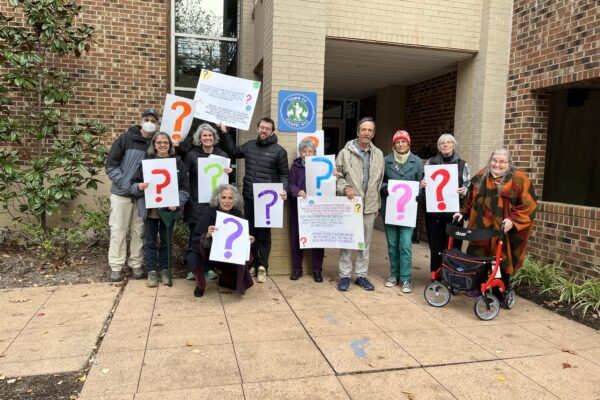This article is by CWFNC volunteer James Lopez
Residents throughout the Appalachian states of Virginia, West Virginia, and North Carolina have united in protest against Mountain Valley Pipeline (MVP) and the proposed MVP Southgate extension. MVP is a proposed natural gas pipeline that, if constructed, will be built through West Virginia and Virginia, with the Southgate extension cutting through southern Virginia and Rockingham and Alamance counties in North Carolina.
The MVP pipeline was first announced in 2014, with construction expected to be complete by 2019. The coronavirus pandemic, loss of required authorizations, and missing permits have slowed construction: construction is currently estimated to be completed during the summer of 2022, in the wake of growing opposition.
The environmental costs of this project, including hundreds of water quality violations, mud slides, and significant problems with erosion control are just the tip of the iceberg. Protests have also been organized in response to Environmental Justice threats, and construction has slowed down due to numerous factors. It is currently 2 years behind schedule.
Pipeline construction has been associated with a myriad of environmental violations in Virginia and West Virginia. Since construction began in 2018, there have been at least 350 water quality violations reported in Virginia alone, as well as an increase in flooding, mudslides and muddy waters. Volunteer group Mountain Valley Watch have reported 650 potential construction and erosion control violations, with local estimates of over 100 people having filed complaints.
Because the pipeline will be used for natural gas extraction, it is also expected to impact the climate with emission of greenhouse gasses such as methane. These gases have been linked to temperature increases in recent years, as well as negative impacts on the health of affected communities.
Opposition to the pipeline has gathered support from people all across the political spectrum, having even gathered support from Tea Party Republicans, such as two members of the Craig County Board of Supervisors. Overall the protests can be described as “big-tent,” as residents unite over the common desire to halt the pipeline and protect their communities from pollution.
Indigenous communities and protesters in North Carolina in particular have taken a stand against the pipeline due to the threat it poses to Indigenous land and waterways. The Haw River, which has historically been used for water by Indigenous communities in North Carolina, is considered one of the most endangered rivers in the United States due to rampant pollution. Pipeline construction threatens this important drinking water source with potential sedimentation and other pollutants.
Indigenous opposition has been common in response to numerous potential pipelines throughout the U.S. and Canada: the main example that comes to mind is the Dakota Access Pipeline, whose construction began in 2016. It has been estimated that indigenous resistance has halted greenhouse gas pollution equal to a quarter of annual U.S. and Canadian pollution. Despite this, there has not always been success: the aforementioned Dakota Access Pipeline was still constructed and is still in use despite the widespread attention and support that the protests received nationally. COVID and loss of authorizations have delayed the construction of the pipeline, to the benefit of the protestors. How they act on this delay, however, still remains to be seen.






